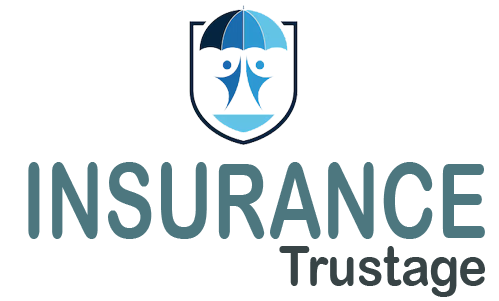Professional Liability Insurance, also known as Errors & Omissions (E&O) Insurance, is a type of insurance designed to protect professionals and businesses that provide advice or services from claims made by clients alleging negligence, mistakes, or failure to perform. It covers legal fees, defense costs, and any settlements or judgments related to such claims.
This insurance is particularly important for professionals like consultants, doctors, lawyers, accountants, IT specialists, and real estate agents, where errors or omissions in their work could lead to financial losses for clients. Unlike general liability insurance, which covers bodily injury and property damage, professional liability insurance focuses specifically on financial and reputational harm caused by professional services or advice.
what does professional liability insurance cover?
Professional Liability Insurance (also known as Errors & Omissions Insurance) typically covers claims arising from mistakes, negligence, or failure to meet professional standards in the services provided. Here’s what it generally covers:
- Negligence: Claims alleging that you failed to perform your professional duties to the standard expected, causing financial loss to a client.
- Errors or Omissions: Mistakes or oversights in your professional services that negatively impact your client.
- Misrepresentation: Claims that allege false or misleading statements were made in the course of your professional duties.
- Legal Defense Costs: Attorney fees and legal costs to defend you, even if the claim is unfounded or false.
- Breach of Contract: Coverage for claims that arise if you are accused of not fulfilling a contract or agreement with a client.
- Inadequate or Incomplete Work: Claims regarding work that does not meet the required standard or was not completed as agreed upon.
- Privacy Violations: In some policies, if client data is mishandled or compromised, coverage may include claims related to privacy breaches.
how much does professional liability insurance cost?
The cost of Professional Liability Insurance (Errors & Omissions – E&O Insurance) varies based on several factors, but on average, premiums range from $500 to $3,000 annually for small businesses. Here are the key factors that affect the cost:
1. Industry Type
- Higher-risk industries (e.g., healthcare, legal, construction) tend to have higher premiums due to the greater risk of claims.
2. Business Size and Revenue
- Larger businesses or those with higher revenue may pay more because they handle more clients and projects, increasing potential exposure to claims.
3. Claims History
- Businesses with a history of professional liability claims will likely see higher premiums compared to those with no or few claims.
4. Coverage Limits
- Policies with higher coverage limits (e.g., $1 million or more per claim) will cost more than those with lower limits.
5. Policy Terms
- Longer retroactive periods, claims-made versus occurrence-based policies, and deductibles all affect the final cost. A lower deductible may result in a higher premium.
6. Location
- Premiums can vary by state or region due to differing legal environments and market conditions.
Example:
- A small IT consultant may pay around $500 to $1,000 annually.
- A lawyer or medical professional might pay $2,000 to $5,000 or more, depending on the level of risk in their profession.
who needs professional liability insurance?
Professional Liability Insurance is essential for anyone who provides professional services, advice, or expertise that could potentially lead to financial harm for clients if mistakes are made. Professionals who commonly need this type of insurance include:
- Healthcare providers (doctors, nurses, therapists)
- Lawyers and legal consultants
- Accountants and financial advisors
- Architects and engineers
- IT professionals and software developers
- Real estate agents and brokers
- Consultants and business advisors
- Marketing and advertising professionals
- Freelancers and independent contractors
How is professional liability insurance different from other types of liability insurance?
Professional Liability Insurance (Errors & Omissions – E&O Insurance) is different from other types of liability insurance in several key ways:
- Coverage Focus:
- Professional Liability Insurance specifically covers claims related to errors, negligence, or failure to provide services up to a professional standard, resulting in financial losses for clients.
- In contrast, General Liability Insurance covers bodily injury, property damage, and personal injury caused by accidents or incidents that occur during business operations.
- Industries Covered:
- Professional Liability Insurance is designed for service-oriented professions like lawyers, doctors, consultants, and architects, where expertise and decision-making can lead to financial harm.
- General Liability Insurance applies to all businesses, covering physical risks and accidents on the premises or at job sites.
- Claims Type:
- Professional Liability Insurance addresses claims of professional negligence, errors, omissions, and failure to deliver on agreed-upon services.
- Product Liability Insurance, on the other hand, covers claims of harm or injury caused by products sold or manufactured by the business.
- Financial vs. Physical Harm:
- Professional Liability covers financial and reputational damages due to poor service or advice.
- Other liability types like General Liability or Commercial Property Insurance focus on physical harm or damage to property and assets.
Does E&O Insurance cover intentional or criminal acts?
No, Errors & Omissions (E&O) Insurance does not cover intentional or criminal acts. E&O insurance is designed to protect professionals from claims of negligence, mistakes, or unintentional errors made while providing their services. If a professional engages in intentional misconduct, fraud, or illegal activities, such claims would be excluded from coverage.
For example, if a professional knowingly provides false information or intentionally misleads a client, the resulting claim would not be covered by E&O insurance. It only covers unintentional errors or acts of negligence, not deliberate or criminal behavior.
What is a retroactive date, and why is it important in an E&O policy?
A retroactive date in an Errors & Omissions (E&O) Insurance policy refers to the date from which coverage begins for incidents or claims made against the insured. It is crucial because it determines whether claims related to work performed before this date will be covered by the policy.
Importance of the Retroactive Date:
- Claims Coverage: If a claim arises from a service rendered before the retroactive date, that claim will not be covered by the policy. Therefore, establishing an appropriate retroactive date is vital for ensuring that prior work is protected.
- Professional Transition: When a professional switches insurance providers, the retroactive date helps maintain coverage continuity. If the new policy has a retroactive date that aligns with or precedes the previous policy’s date, it ensures that any claims from past services are still covered.
- Risk Management: Understanding and negotiating the retroactive date is essential for managing risk. A later retroactive date may leave a professional exposed to claims arising from past work, while an earlier date provides broader protection.
Are independent contractors and freelancers eligible for Professional Liability Insurance?
Yes, independent contractors and freelancers are eligible for Professional Liability Insurance (Errors & Omissions Insurance), and it is often highly recommended for them due to the nature of their work. Since these professionals typically provide specialized services or advice, they are vulnerable to claims of negligence or errors that could result in financial losses for clients. Many clients, especially larger organizations, may require independent contractors to carry this insurance as part of their contract to mitigate potential claims. E&O Insurance covers legal defense costs, settlements, and judgments related to claims of professional negligence, which is particularly important for freelancers and contractors who may lack the financial resources to cover these expenses out of pocket. Additionally, many policies can be tailored to meet the specific profession and risk level of the independent contractor, providing essential protection as they navigate their professional services.
Can E&O Insurance be customized to specific industries, and if so, how?
Yes, Errors & Omissions (E&O) Insurance can be customized to specific industries to address the unique risks and challenges professionals face in their respective fields. Here’s how customization typically works:
- Tailored Coverage Options: Insurers offer various coverage options that can be tailored to specific industry needs. For instance, a healthcare provider may require coverage for patient-related claims, while a technology consultant might need protection against software-related errors.
- Industry-Specific Exclusions and Endorsements: Policies can include endorsements or exclusions that reflect the specific risks associated with an industry. For example, a real estate agent may need coverage for errors related to property disclosures, while an accountant might require protection against claims stemming from tax advice.
- Limits and Deductibles: Businesses can choose different coverage limits and deductibles based on the typical risk exposure in their industry, allowing them to find a balance between premium costs and the level of protection required.
- Regulatory Requirements: Certain industries may have regulatory requirements that necessitate specific types of coverage. Insurers can help ensure that policies comply with these regulations, providing peace of mind to professionals.
- Claims History Considerations: Insurers may analyze claims history within specific industries to adjust coverage terms, ensuring that the policy aligns with the common risks faced by professionals in that sector.
How does Professional Liability Insurance help protect against lawsuits from dissatisfied clients?
Professional Liability Insurance (Errors & Omissions Insurance) protects professionals against lawsuits from dissatisfied clients by covering legal defense costs, including attorney fees and court expenses associated with claims. This financial protection is crucial, as legal costs can escalate quickly, even if the claims are unfounded. Additionally, if a lawsuit results in a settlement or judgment, E&O Insurance can cover these costs up to the policy limit, helping prevent significant financial losses that could threaten the professional’s business. Insurers often provide claims management services to assist professionals in navigating legal disputes, including negotiating settlements and representing them in court. Moreover, having this insurance offers peace of mind, allowing professionals to focus on delivering quality services without the constant worry of potential lawsuits. Many insurers also provide risk management tools and resources to help minimize errors and reduce the likelihood of claims, ultimately enhancing service quality and client satisfaction.
Are there any legal requirements for carrying Professional Liability Insurance in certain professions or regions?
Are there any legal requirements for carrying Professional Liability Insurance in certain professions or regions?
- Regulated Professions: Many regulated professions, such as healthcare providers (doctors, nurses), lawyers, accountants, and engineers, often have specific licensing requirements that include maintaining Professional Liability Insurance. Regulatory bodies may mandate that practitioners carry a certain amount of coverage to protect clients.
- State or Provincial Laws: In some regions, state or provincial laws may require specific professions to carry E&O Insurance. For example, certain states may have regulations for real estate agents or financial advisors that necessitate having Professional Liability Insurance to safeguard against potential claims.
- Contractual Obligations: Even if not legally required, some businesses may have contractual obligations to carry Professional Liability Insurance. This is common in client agreements, especially with larger companies or government contracts, where the client requires proof of insurance before work can begin.
- Insurance Coverage Requirements: Some industries have standard practices that encourage or require professionals to obtain E&O Insurance. For instance, in the construction industry, subcontractors may be required to have this insurance to protect against potential claims related to project work.
- Variability by Region: The legal requirements can vary significantly by region, so it’s essential to research local laws and regulations that pertain to your specific profession and location.
How can I reduce the likelihood of a Professional Liability claim being filed against me?
Reducing the likelihood of a Professional Liability claim being filed against you involves proactive measures to enhance your professional practices and mitigate risks. Here are several strategies to consider:
- Maintain Clear Communication: Establish open and clear lines of communication with clients to ensure that expectations, deliverables, and timelines are well understood. Regular updates and confirmations can help avoid misunderstandings.
- Document Everything: Keep thorough records of all client interactions, agreements, and service deliverables. Written documentation can serve as evidence in case of disputes and can help clarify responsibilities and expectations.
- Use Contracts: Always use well-drafted contracts that outline the scope of work, responsibilities, and limitations of liability. Contracts can provide legal protection and set clear expectations for both parties.
- Practice Due Diligence: Conduct comprehensive research and due diligence before providing services or advice. Ensuring that you have the necessary expertise and knowledge can help prevent errors that could lead to claims.
- Implement Quality Control Measures: Establish internal processes and quality control measures to review your work before delivery. This can help catch errors early and enhance the overall quality of your services.
- Seek Feedback: Regularly solicit feedback from clients to identify any areas of concern. Addressing issues proactively can help resolve potential disputes before they escalate into claims.
- Engage in Continuing Education: Stay updated on industry standards, practices, and regulations through ongoing education and training. This will enhance your skills and reduce the likelihood of mistakes.
- Set Realistic Expectations: Be honest about what you can deliver and avoid overpromising results. Setting realistic expectations can prevent dissatisfaction and claims from clients.
- Review and Update Policies: Regularly review your business practices and Professional Liability Insurance policy to ensure that you are adequately covered and compliant with current standards.
What kind of documentation is needed when filing a claim under Professional Liability Insurance?
When filing a claim under Professional Liability Insurance (Errors & Omissions Insurance), it’s important to provide thorough and organized documentation to support your case. Here’s a list of key documents typically needed:
- Claim Form: Complete the insurance company’s claim form, providing all required information about the incident and the parties involved.
- Incident Report: Prepare a detailed account of the incident that led to the claim, including dates, locations, and a description of the services provided. This report should outline the nature of the claim and any relevant facts.
- Contracts and Agreements: Include copies of any contracts, service agreements, or statements of work that outline the scope of services provided to the client. These documents can help clarify the terms of your professional relationship.
- Correspondence: Gather all communications related to the claim, including emails, letters, and notes from phone calls with the client. This documentation can provide context and help demonstrate your communication efforts.
- Supporting Documents: Attach any relevant documentation that supports your defense, such as project plans, reports, proposals, or work samples. This evidence can help establish that you fulfilled your obligations as per the agreement.
- Client Complaints or Feedback: If applicable, include any documentation of client complaints or feedback that pertain to the incident, as well as any responses or resolutions offered.
- Expert Opinions: If available, gather any expert opinions or evaluations that may support your position, particularly if the claim involves technical or specialized knowledge.
- Financial Records: Provide any relevant financial documents that illustrate the impact of the claim, such as invoices, receipts, or records of any losses incurred due to the incident.
- Insurance Policy: Keep a copy of your Professional Liability Insurance policy handy, as it may contain important information regarding coverage limits, exclusions, and procedures for filing claims.


